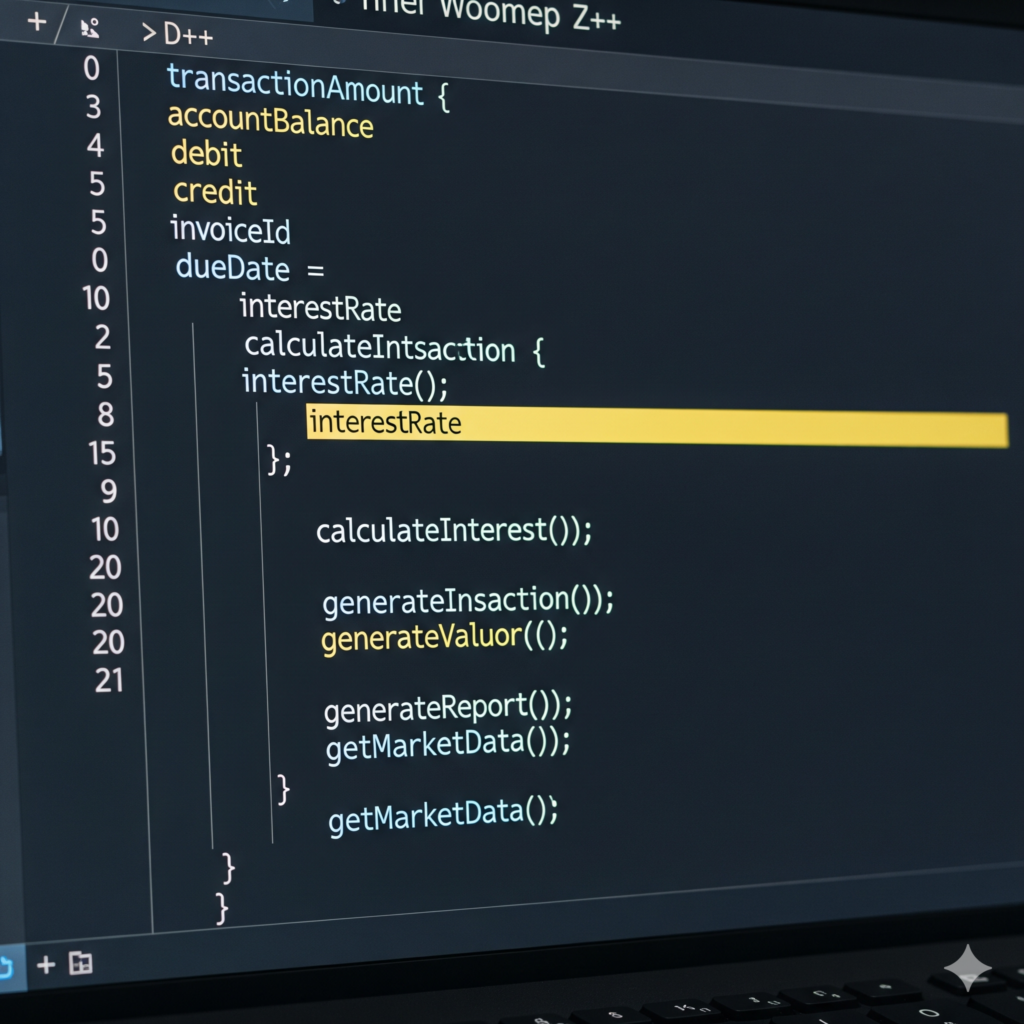
C++ Implementation in Accounting: Streamlining Financial Processes
In today’s fast-paced business world, accounting systems require high performance, accuracy, and flexibility. C++, with its speed, efficiency, and robust features, has become an effective tool for developing accounting software that meets these demands.
Why C++ for Accounting?
C++ is a compiled, high-performance language that allows developers to create fast and reliable applications. Its object-oriented nature makes it ideal for modeling complex financial systems, such as accounts, ledgers, and transactions. Features like strong type-checking, memory management, and support for large-scale data processing ensure that financial computations are accurate and efficient.
Key Implementations
Ledger Management:
C++ can be used to design classes for various account types—assets, liabilities, expenses, and income. Each class can include methods for adding transactions, calculating balances, and generating reports. This modular approach simplifies code maintenance and scalability.
Automated Financial Calculations:
Complex operations like depreciation, tax calculations, interest computations, and payroll processing can be implemented efficiently using C++’s mathematical libraries and object-oriented structures.
Data Security and Integrity:
Accounting software often handles sensitive financial data. C++ provides tools for secure file handling, encryption, and validation, ensuring that data remains protected and accurate.
Integration with Databases:
C++ can interface with SQL databases to store and retrieve transactional data. By combining C++ with database connectivity libraries like ODBC or MySQL connectors, businesses can implement robust accounting systems capable of handling high volumes of financial data.
Reporting and Analysis:
C++ applications can generate comprehensive financial reports, including balance sheets, profit & loss statements, and cash flow summaries. Its computational efficiency allows real-time analysis of large datasets, giving accountants quick insights for decision-making.
Advantages of Using C++ in Accounting
High performance and fast execution for large datasets.
Object-oriented design supports modularity and code reusability.
Strong type-checking reduces errors in financial computations.
Extensive libraries for math, file handling, and database integration.
Cross-platform development possible for desktop and server applications.
Conclusion Implementing accounting systems in C++ allows businesses to build efficient, secure, and scalable financial software. Its performance advantages, combined with object-oriented programming, make it a valuable choice for companies looking to modernize their accounting processes and gain better control over financial operations.
Leave a Reply